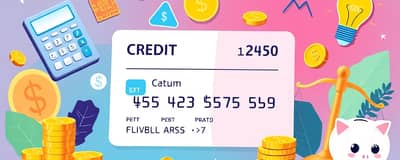Credit Card Debt Solutions: Fast-Track Your Path to Financial Freedom

If you find yourself overwhelmed with credit card debt, you're not alone. Many individuals struggle to manage their finances, leading to a cycle of debt that feels impossible to escape. However, understanding your options and creating a structured plan can fast-track your path toward financial freedom. In this article, we'll explore a variety of effective solutions to combat credit card debt.
From budgeting to negotiating with creditors, the steps toward debt relief require diligence but can lead to significant progress. The journey might not be easy, but equipping yourself with the right information is the first step in regaining control of your finances. Let's dive into practical strategies that you can implement to help alleviate your credit card burden.
Understand Your Debt

To tackle credit card debt effectively, it's essential first to understand the complete picture of your financial obligations. Begin by listing all your credit cards, balance due on each, interest rates, and minimum payments required. This transparency will highlight which debts are most urgent and costly.
Recognizing the psychology behind debt can also empower you. Many people accumulate debt without being fully aware of their spending habits or the compounding effects of interest rates on their balances. By addressing these habits, you can take significant strides toward improvement.
Understanding your debt isn't just about numbers; it's also about acknowledging the emotional impact that financial stress can have on your life. This understanding is vital in motivating you to seek effective solutions and remain committed to resolving your financial issues.
Create a Budget
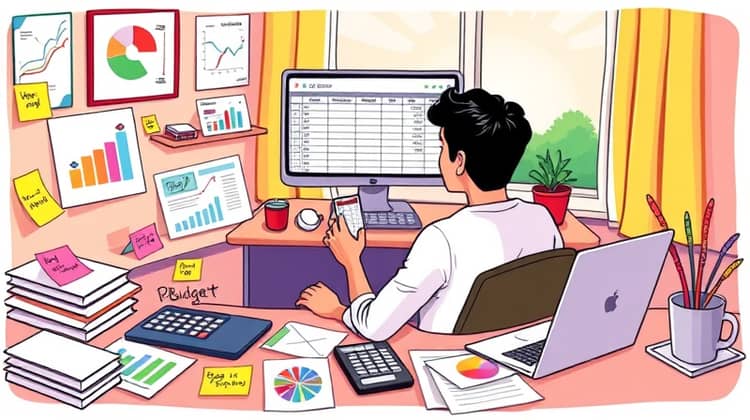
Once you have a comprehensive view of your debt, the next step is creating a budget. A budget will track your income and expenses, allowing you to see where your money is going and how much you can allocate toward debt repayment.
Establishing a budget can seem daunting at first, especially if you’ve never done it before. However, it's a fundamental tool for managing finances and can significantly assist in paying off debt. Start by listing all your sources of income and monthly expenses to determine your disposable income.
- Identify non-essential expenses that you can cut back on.
- Allocate a specific percentage of your income toward debt repayment.
- Set aside money for unexpected expenses to avoid adding to your debt.
- Track your spending habits regularly to stay accountable.
A well-thought-out budget not only helps you pay off your debt but also prepares you for unforeseen expenses that could disrupt your repayment plan. It lays the foundation for healthier financial habits moving forward.
Negotiate with Creditors

When struggling with credit card debt, consider reaching out to your creditors to discuss your situation. Many creditors are open to negotiation and may be willing to lower your interest rates or modify your payment plan to help you manage your debt more effectively.
Negotiation can feel intimidating, but it's a common practice. Be prepared with your financial information and any reasons you may have for requesting assistance. Creditors often prefer working with you to ensure they receive at least some payment rather than risking a default.
- Contact customer service and request to speak with a representative.
- Explain your financial situation succinctly and directly.
- Ask if they can reduce your interest rate or lower your monthly payments.
- Get any agreements in writing for documentation.
After negotiations, review any new agreements carefully. Staying proactive with your creditors can foster positive relationships that may benefit you in the long run, making it easier to manage your repayment journey.
Debt Consolidation
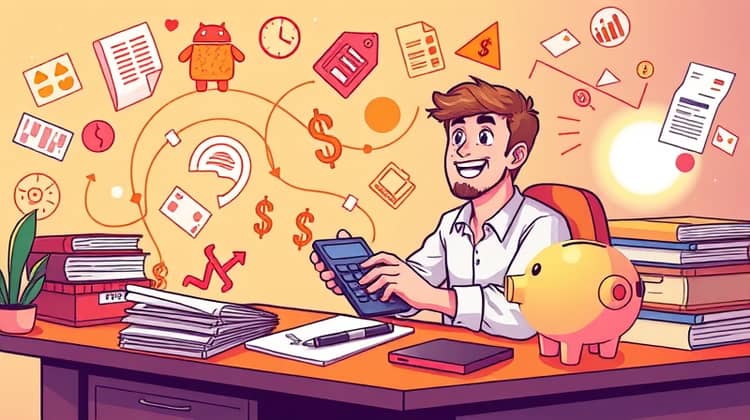
Debt consolidation is a viable option for many individuals looking to streamline their debt repayment. This process involves combining multiple debts, typically at a lower interest rate, into one manageable monthly payment. It can simplify your financial management significantly.
While debt consolidation can be beneficial, it's essential to approach it wisely. Research various options, such as personal loans or balance transfer credit cards, to determine what works best for your financial situation.
- Personal loans for debt consolidation purposes.
- Balance transfer cards with low or zero introductory interest rates.
- Home equity loans or lines of credit if you own a home.
- Debt management programs that consolidate debt for you.
With the right strategy, debt consolidation can help you save on interest and pay off your debt faster. However, it's crucial to address any underlying spending issues to prevent accumulating further debt after consolidation.
Balance Transfer Cards
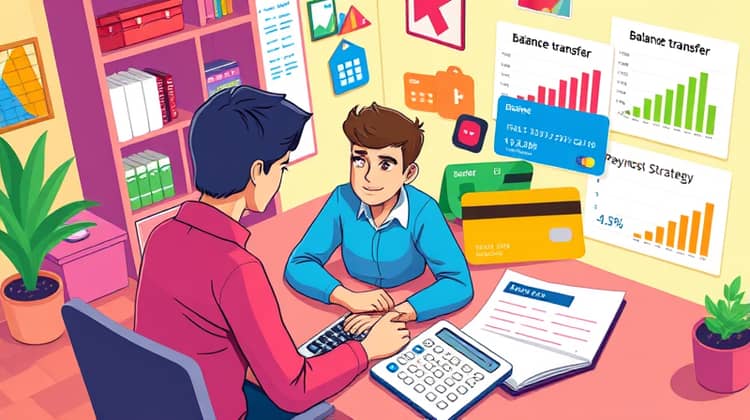
Utilizing balance transfer credit cards can be an effective strategy for managing credit card debt. These cards typically offer low or zero interest rates for an introductory period, allowing you to transfer your existing high-interest balances and save money on interest payments.
Careful analysis is essential before moving forward with balance transfers. Ensure that you can pay off the transferred amount during the promotional period to maximize your savings. It's also important to be mindful of transfer fees and new purchases, which may incur higher interest rates.
- Look for balance transfer cards with a lengthy zero percent interest introductory period.
- Calculate potential savings by understanding transfer fees and interest rates.
- Plan a repayment strategy to pay off the balance before the promotional period ends.
- Do not accrue new debt on transferred balances.
Using balance transfer cards can act as a lifeline during stressful financial times; however, they require discipline and commitment to ensure that they serve their intended purpose without adding to your debt.
Debt Settlement

Debt settlement is an option available for those who may be significantly behind on payments and unable to manage their current debts. This approach involves negotiating with creditors to settle your debt for less than the amount owed. It's crucial to proceed with caution, as this can have considerable implications for your credit score.
Before entering into a settlement agreement, carefully evaluate your finances. Understand how much you can realistically afford to pay in a lump sum or in negotiated installments.
- Research and contact your creditors to see if they accept settlement offers.
- Assess your finances to determine a reasonable settlement amount.
- Be prepared to negotiate multiple times for the best result.
- Consult with a financial advisor to understand the consequences.
While debt settlement can provide immediate relief, it often comes at the expense of your credit score. This measure should be taken only after considering the long-term repercussions and exploring all other debt solutions.
Seek Professional Help

If debt feels unmanageable, seeking professional help can provide significant relief and guidance. Many nonprofits offer financial counseling, debt management programs, and other resources to help individuals navigate their financial challenges effectively.
Professionals can offer tailored strategies based on your unique circumstances, providing both advice and support throughout your journey.
- Find a reputable credit counseling agency.
- Schedule a consultation to discuss your financial situation.
- Follow their recommendations and stay engaged in the process.
Professional help can be a game-changer, but it's important to do your due diligence when choosing an advisor to ensure they align with your financial goals.
Increase Your Income

Increasing your income can provide additional funds to tackle credit card debt more effectively. Look for opportunities to earn extra income through part-time work, freelancing, or selling unwanted items. Any additional income can bolster your repayment efforts and expedite the process of becoming debt-free.
Explore avenues within your current job as well, such as overtime opportunities or promotions, which could lift your earning potential.
- Look for part-time or freelance opportunities in your community.
- Sell unused or unnecessary items online or in garage sales.
- Consider asking for a raise or negotiating your salary if applicable.
Augmenting your income can make a significant difference in your debt repayment timeline, providing you with more resources to pay down what you owe and work toward your financial freedom.
Avoid Common Mistakes
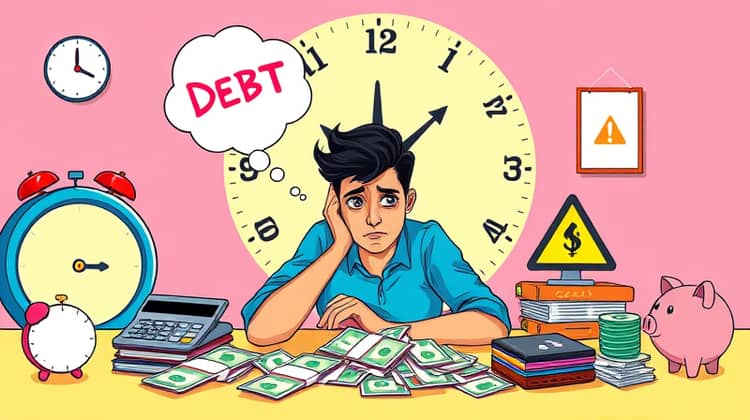
When managing credit card debt, it's crucial to recognize and avoid common pitfalls that many individuals face. These mistakes can derail progress and keep you from achieving financial stability. Staying informed will empower you to make smarter decisions and remain accountable for your debt repayment journey.
Be cautious of taking on more debt while you work to pay off existing balances. This behavior can quickly halt your progress and lead to a cycle of mounting debt.
- Avoid making only minimum payments, as this prolongs debt repayment.
- Don't take on new debts while trying to pay off current ones.
- Stay away from high-interest loans that can further complicate your situation.
Awareness of these pitfalls can safeguard your financial future, ensuring that you make well-informed choices in your quest for debt relief.
Stay Committed
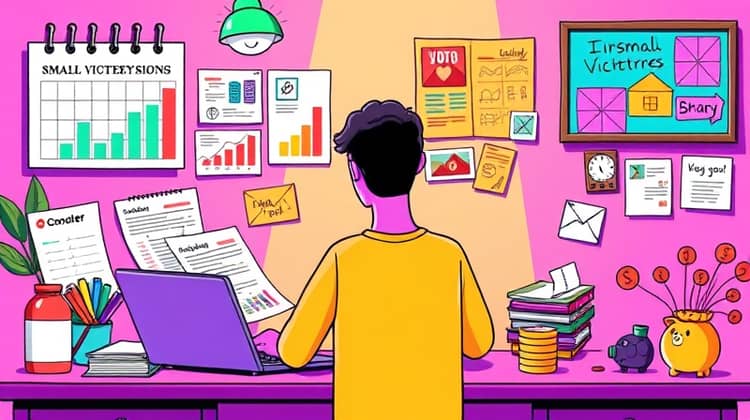
The journey to overcoming credit card debt is not only about developing strategies but also about maintaining commitment to your plan. Financial change requires resilience and determination, and it's essential to stay motivated throughout the process. Regularly review your budget and repayment plans to ensure you remain on track.
Celebrate your small victories along the way. Each payment you make contributes to a larger goal, and acknowledging these wins can help you stay inspired and committed to following through with your financial resolution.





